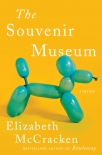An American Tragedy, Theodore Dreiser [best business books of all time txt] 📗

- Author: Theodore Dreiser
Book online «An American Tragedy, Theodore Dreiser [best business books of all time txt] 📗». Author Theodore Dreiser
But the Griffiths of Lycurgus, on hearing this, resenting her coming as one more blow. And Clyde, in his cell, on reading of it later, somewhat shocked by the gross publicity now attending everything in connection with him, yet, because of his mother’s presence, resigned and after a time almost happy. Whatever her faults or defects, after all she was his mother, wasn’t she? And she had come to his aid. Let the public think what it would. Was he not in the shadow of death and she at least had not deserted him. And with this, her suddenly manifested skill in connecting herself in this way with a Denver paper, to praise her for.
She had never done anything like this before. And who knew but that possibly, and even in the face of her dire poverty now, she might still be able to solve this matter of a new trial for him and to save his life? Who knew? And yet how much and how indifferently he had sinned against her! Oh, how much. And still here she was—his mother still anxious and tortured and yet loving and seeking to save his life by writing up his own conviction for a western paper. No longer did the shabby coat and the outlandish hat and the broad, immobile face and somewhat stolid and crude gestures seem the racking and disturbing things they had so little time since. She was his mother and she loved him, and believed in him and was struggling to save him.
On the other hand Belknap and Jephson on first encountering her were by no means so much impressed. For some reason they had not anticipated so crude and unlettered and yet convinced a figure. The wide, flat shoes. The queer hat. The old brown coat. Yet somehow, after a few moments, arrested by her earnestness and faith and love for her son and her fixed, inquiring, and humanly clean and pure blue eyes in which dwelt immaterial conviction and sacrifice with no shadow of turning.
Did they personally think her son innocent? She must know that first. Or did they secretly believe that he was guilty? She had been so tortured by all the contradictory evidence. God had laid a heavy cross upon her and hers. Nevertheless, Blessed be His name! And both, seeing and feeling her great concern, were quick to assure her that they were convinced of Clyde’s innocence. If he were executed for this alleged crime it would be a travesty on justice.
Yet both, now that they saw her, troubled as to the source of any further funds, her method of getting here, which she now explained, indicating that she had nothing. And an appeal sure to cost not less than two thousand. And Mrs. Griffiths, after an hour in their presence, in which they made clear to her the basic cost of an appeal—covering briefs to be prepared, arguments, trips to be made—asserting repeatedly that she did not quite see how she was to do. Then suddenly, and to them somewhat inconsequentially, yet movingly and dramatically, exclaiming: “The Lord will not desert me. I know it. He has declared himself unto me. It was His voice there in Denver that directed me to that paper. And now that I am here, I will trust Him and He will guide me.”
But Belknap and Jephson merely looking at one another in unconvinced and pagan astonishment. Such faith! An exhorter! An Evangelist, no less! Yet to Jephson, here was an idea! There was the religious element to be reckoned with everywhere—strong in its agreement with just such faith. Assuming the Griffiths of Lycurgus to remain obdurate and unmoved—why then—why then—and now that she was here—there were the churches and the religious people generally. Might it not be possible, with such a temperament and such faith as this, to appeal to the very element that had hitherto most condemned Clyde and made his conviction a certainty, for funds wherewith to carry this case to the court of appeals? This lorn mother. Her faith in her boy.
Presto!
A lecture, at so much for admission, and in which, hard-pressed as she was and could show, she would set forth the righteousness of her boy’s claim—seek to obtain the sympathy of the prejudiced public and incidentally two thousand dollars or more with which this appeal could be conducted.
And now Jephson, turning to her and laying the matter before her and offering to prepare a lecture or notes—a condensation of his various arguments—in fact, an entire lecture which she could rearrange and present as she chose—all the data which was the ultimate, basic truth in regard to her son. And she, her brown cheeks flushing and her eyes brightening, agreeing she would do it. She would try. She could do no less than try. Verily, verily, was not this the Voice and Hand of God in the darkest hour of her tribulation?
On the following morning Clyde was arraigned for sentence, with Mrs. Griffiths given a seat near him and seeking, paper and pencil in hand, to make notes of, for her, an unutterable scene, while a large crowd surveyed her. His own mother! And acting as a reporter! Something absurd, grotesque, insensitive, even ludicrous, about such a family and such a scene. And to think the Griffiths of Lycurgus should be so immediately related to them.
Yet Clyde sustained and heartened by her presence. For had she not returned to the jail the previous afternoon with her plan? And as soon as this was over—whatever the sentence might be—she would begin with her work.
And so, and that almost in spite of himself, in his





Comments (0)